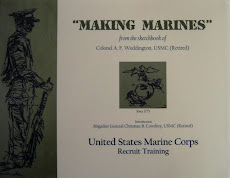BRAVERY—AMERICAN STYLE
By Andy Weddington
Friday, 02 January 2009
Bravery—defined as courage or valor—is one of those intangible qualities inherent in every leader. Absent bravery, you are not a leader. Though bravery is usually thought of in the context of battlefield heroism, there are all sorts of “battlefields” and all sorts of bravery. Regardless of “battlefield” and though intangible, one thing is for certain—you know bravery when you “see” it; instantly—there is no mistake.
“American Patriot—the Life and Wars of Colonel Bud Day” by Robert Coram was given to me seven days ago as a Christmas gift. The book was impossible to put down. The biography chronicles the life and incredibly selfless military service of an American warrior. And that is an understatement. The jaw-dropping story of Colonel George E. “Bud” Day, U.S. Air Force (Retired) is one of unequivocal bravery; on foreign battlefields, in captivity, and on domestic “battlefields.” That he also proudly claims the title “Marine” and wears a Good Conduct Medal among his scores of decorations—many from combat—adds fitting drama to his life. But today’s comment is not about Colonel Day so I will not recap his remarkable story nor spoil the book. Read it.
Since starting this commentary in early November it was my plan to open the New Year with this story. That the story of Colonel Day came my way before finalizing today’s words was fortuitous. Today’s remarks are about bravery and, in particular, bravery I bore up close and personal witness to throughout most of 2008. The bravery I will shortly attest to did not take place on a battlefield. But, it was clearly a “battlefield” and waged against a ruthless enemy.
At approximately 1530 on Friday, 07 March 2008 a seasoned, semi-retired oncologist walked into a consultation room and informed Linnea, my beautiful, gregarious wife of nearly 22 years, that she had breast cancer. We were momentarily stunned—then terrified. This was not the expected news. Since when does cancer strike healthy, physically fit, nearly vice-less people? The answer: every day. But it’s always someone else. Not this time. We may as well have been blind-sided by a baseball bat to the head swung by a major-leaguer. Several tests prior to biopsy indicated a benign cyst. After a core biopsy the previous day the doctor’s—same oncologist who delivered the news—prediction was the tissue would most likely confirm benign cyst. In fact, he was more than 99% certain. Less than twenty-four hours later science proved him wrong. Boy ol’ boy was he wrong.
A book is in draft so no call here for chronological specifics and “battlefield” details. The topic is: bravery
Bravery is coming to grips with the fact you have just been diagnosed with a disease that is a heartless killer—even though you feel completely healthy. Bravery is losing composure but then collecting one’s self and giving cancer a steely-eyed stare and not blinking—ever. Bravery is taking the most aggressive path, confidently and without delay, to kill the killer before it kills you. Bravery is volunteering an arm once every two weeks for eight cycles of chemotherapy treatment knowing that you are willingly poisoning yourself and are going to be sicker than you can believe possible. Bravery is dealing with complete loss of skin color and hair, neuropathy, nausea that defies the most powerful of aprepitants, and sundry of miserable side effects that leave you feeling indescribably awful most of the time. Bravery is continuing to perform duties (Linnea was a Commanding Officer, U.S. Navy during her ordeal), to include physical exercise, with minimal if any degradation of performance despite the cumulative, energy-draining effects of chemotherapy. Bravery is continuing with daily life and being completely open about the ordeal to educate others. Bravery is responding to a friend’s plea to call someone they know who has recently been diagnosed and sharing your story—even while in the midst of treatment. Bravery is making the decision to have a bi-lateral mastectomy knowing that it is physically and psychologically traumatic and disfiguring but the best decision for non-recurrence and survival. Bravery is facing weeks of post-surgery discomfort and healing. Bravery is going through a rigorous and painful physical therapy regimen—daily—to restore arm and chest strength and range-of-motion. Bravery is keeping an incredibly positive attitude and not surrendering for a second even during the darkest and scariest of times. Bravery is carrying on with a warrior spirit knowing life is forever changed. Bravery is walking into the cancer clinic for quarterly blood work to ensure the cancer remains dead. Bravery is doing all the above while still grieving from the sudden death of your mother two months before diagnosis. And those are only the beginning observations of bravery while attacking cancer.
After a nine month and, at times, gruesome battle waged with defiance, determination, and an all-encompassing aura of bravery, Linnea is today declared cancer-free. Yet in some context, as every cancer survivor knows, her ‘battle’ will continue for life. Unlike extraordinary bravery by a combatant being recognized by a decoration, there will be no medals for the courage Linnea constantly exhibited on her “battlefield.” But to those who witnessed her bravery—family, friends, and her Sailors—she left an indelible mark as to what bravery—leadership—is all about. She not only prevailed but led while under extreme and unimaginable mental and physical duress. Her Sailors would follow her anywhere before she was diagnosed. Her bravery after diagnosis merely confirmed what they already knew—she is a “warrior.” They call her “Skipper.”
As for me, seeing extraordinary moments of bravery every single day since that late afternoon in early March was routine. And I was not surprised. By default Linnea had the lead, but we waged war together every step of the way. Linnea is the bravest person I know.
We welcome 2009. Boy ol’ boy do we welcome 2009. Amen.
02 January 2009
Subscribe to:
Post Comments (Atom)












No comments:
Post a Comment